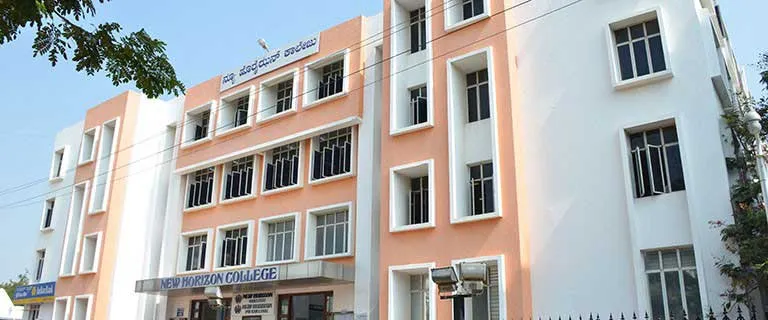NEWS
Introduction to DevOps
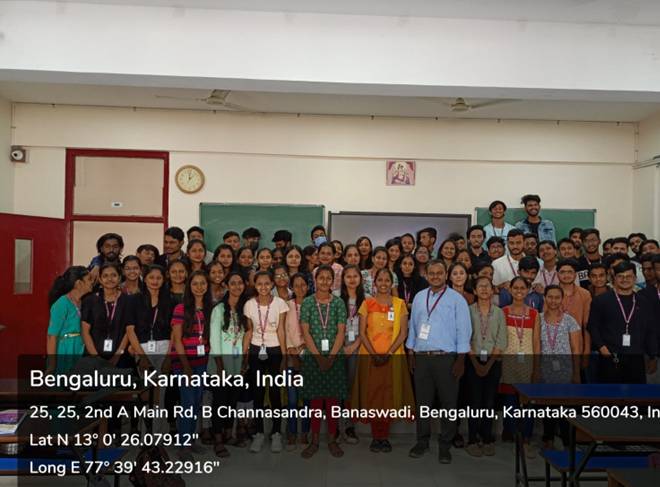
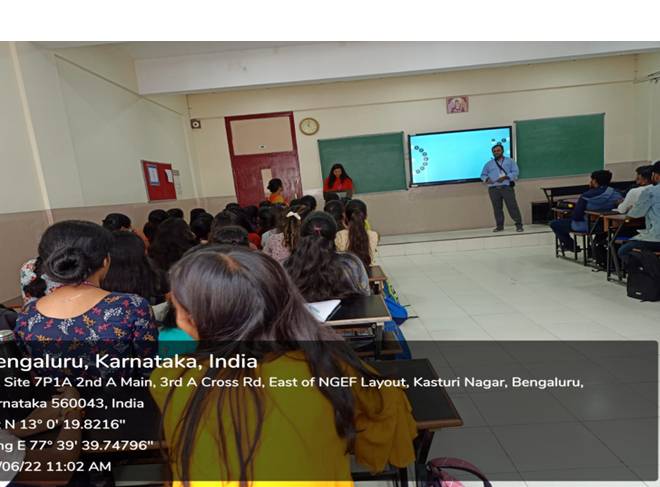
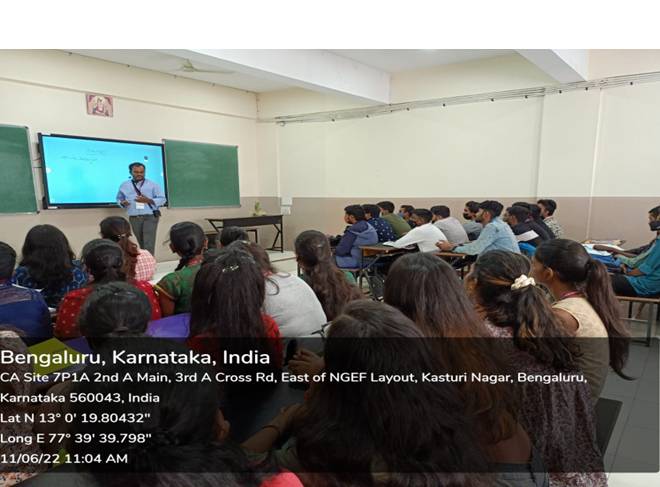
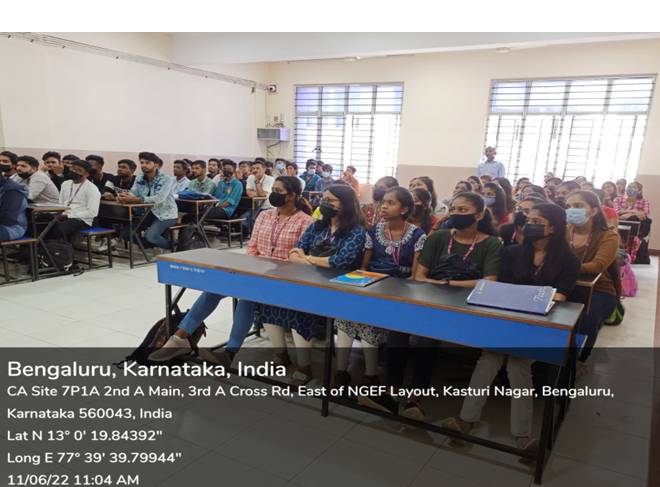
Date – 11/06/2022
Time – 11:00 am- 12:10 PM
Venue – Room D34
Class – II YEAR B.C.A
Profile of the Speaker
Mr. U Nagaraju Resource Person’s Name
Assistant Vice president at Wells Fargo,
Bengaluru.
OBJECTIVE:
- To give a basic idea related to the DevOps and how it’s related to the real world.
- To ensure optimal development of an idea to reality by visualizing as an infinite loop comprising the steps: plan, code, build, test, release, deploy, operate, monitor, then back to plan, and so on.
INTRODUCTION:
DevOps is an approach to software development, where the development team (Dev) collaborates with the operations department/function (Ops) in all the stages of software development. These include product design, development, testing, deployment, and support.
DevOps is sometimes similar to Agile and Lean approaches because it provides the same quality checks and standards that the methodologies above due. Before Agile, developers and operations worked in silos. The developers made the product, and the operations team handled all processes afterward. The resulting harm from this approach is what gave rise to Agile and DevOps. DevOps further improves on Agile by emphasizing the successful delivery of software that is entirely usable during every iteration. It helps in limiting the frustration of both the internal teams working on the product and the end-user.
Benefits of Learning DevOps:
- Programming errors is one of the leading reasons why a deployment fails. The frequent release of code occasioned with the DevOps approach ensures problem detection at an earlier stage. With dev and ops teams working together, recovery time is a lot shorter.
- Cloud-based platforms. The use of hardware resources during development ties up relevant system infrastructure unnecessarily. Scalable infrastructures like cloud-based platforms resolve this problem, resulting in speedier processes.
- Build acceleration tools for faster compilation of code.
- Parallel workflow processes, for smoother operation of the continuous delivery chain.
About the Seminar:
The speaker of the session Mr. U Nagaraju Having 11years of experience on DevOps engineer, such as in Linux 5/6, dockers and Jenkins, Ant, Maven, SVN, GIT, Python, puppet, Shell script, Haproxy, AWS, Microsoft Azure, Docker, red hat open stack, pipeline, apache tomcat, groovy, Ansible, Terraform, Kubernetes, Elastic search, Logstash, ALM, Test Rail, Jira, Confluence. He explained the basic concepts of DevOps, how to handle the development and operation together it helps in build automation, configuration management, orchestration, monitoring, microservices.
Goals of DevOps includes:
- Breaking down the communication barriers.
- Creating of cross-functional teams
- Enhancing the flow of ideas and executing the same.
Topics covered in this session are Introduction to DevOps, SDLC (software development life cycle), Agile and development life of Agile. DevOps is an application that helps automate the software development process. It mainly focuses on communication and collaboration between product management, software development, and operations professionals. DevOps tool also enables teams to automate most of the software development processes like build, conflict management, dependency management, deployment, etc. and helps reduce manual efforts.
Following is the list of DevOps tools and technologies:
- QuerySurge
- Basis Technologies
- Keysight Eggplant
- Datadog
- Solarwinds DevOps
- Jenkins
- Vagrant
- PagerDuty
- Prometheus
- Ganglia
- Snort
The above tools were explained and also, he gave an ideas on research topics, different job opportunities on the technologies.
CONCLUSION:
It was observed that the knowledge of the students was satisfactory for most of the variables like understanding the Devops and how where the data can be used in different applications.

